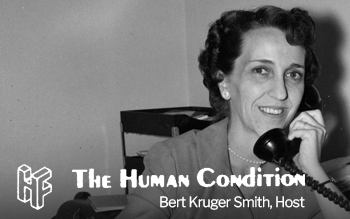March is National Social Work Month, and here at the Hogg Foundation, we see firsthand the major role social workers play in the upkeep of mental health.
We are joined today by Catherine Wilsnack, a doctoral candidate at The University of Texas at Austin School of Social Work. Catherine earned her B.S. in Psychology from the University of North Carolina at Chapel Hill and her M.S.W. from the University of Pennsylvania’s School of Social Policy and Practice. Prior to pursuing social work, she worked as a mental health clinician. She discusses the unique perspective that social workers have on mental health and the collaboration between academic researchers and practitioners at the heart of the field.

Children of Change: Supporting Youth Mental Health in an Uncertain World
We take a deep dive into youth mental health, the pressures on families and educators, and the community-driven solutions that offer hope.
AI and Beyond: Technology Shaping Mental Health
Artificial intelligence, or AI, is changing how we live, work, and even how we take care of our mental health. At the Hogg Foundation, we care deeply about how new tools like AI are being used to help people.
Funding Mental Health: Innovations and Opportunities
Who funds mental health work? How do organizations access support for the critical services they provide? And what does innovation in mental health funding look like?
Learning to Love: Dr. Leo Buscaglia on The Human Condition
The elusive concept of love is at the center of our most recent episode of Into the Fold, which features an archived recording of the Hogg Foundation radio show, The Human Condition.
Public Policy for Building a Resilient Future
Mental health advocacy in Texas is undergoing significant shifts as new policies reshape the landscape of care and access. Our most recent episode of Into the Fold features a compelling discussion with three local policy experts.
Supporting Mental Health During the Holidays
Austin Clubhouse provides a safe and inclusive space for individuals with mental health challenges, especially during the holidays. The organization’s approach is rooted in fostering a sense of belonging and mutual support.






